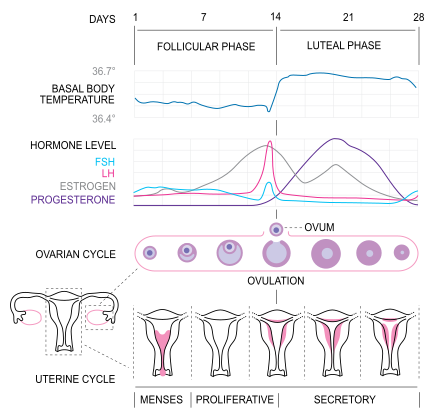
Every good sentence is made up of a subject and a predicate. In two words, God summed up who He is: I am. His own words express to us the unfathomable depth of His being, He is. Subject = God. Predicate = is. It is a full sentence, and yet in English it is as short as sentences get. It is ironic that the eternal, the infinite, the all in all, can express His existence with such brevity, and yet, it seems, in our finitude our attempts at expressing ourselves is limitless.
Many of the problems we face today arise from our inability to recognize who we are and express that identity properly. Our tendency is to try and define ourselves according to what we do. Our self-perspective is most often a description of what we do. Our identity, as we see it, is primarily based on those actions we do most often. For example, "I am a runner"or "I am a photographer." There is no doubt, that what you do has an impact on who you are, but I do not think that we would ever answer, "Who are you?," with, "I am a runner."
When confronted with the question, "Who are you?" our tendency is to give our name. "Who," you see, is not only an interrogative pronoun, but also personal, like "whom." Unlike "whom," "who" is subjective, and when asked, "who" is searching for a personal subject. I become the subject, and my name designates me among any number of
persons.
What's in a name?
Names are interesting, because they work in a similar way no matter what culture you call your own. In some cultures, family names comes first and an individual's last, which may seem strange until you consider the way we scientifically name species. Some cultures have generational names, which every family member of a specific generation has in their name. Sometimes within Western culture, the only part of the name which distinguishes one individual from another is the suffix Jr. or some number. Whatever the tradition, the name always implies some relationship.
My name for instance, is made up of a first, middle, and last name. Starting from the generic and moving to the specific, my last name is 'hyphenated': Córdova y Muenzberg. Already my ethnicity is presenting itself. Like many Americans today, I am of mixed heritage. I am half-Hispanic and half-German. The Spanish word "y" means "and." So, if I translated my name it would be Córdova "and" Muenzberg. My last name refers to both my mother's family line and my father's. In this way, I have already situated myself within the context of a family from whom I have received these names. Both of my last names refer to the specific region from which my families hail, namely Münzenberg, Germany and Córdoba, Spain. These names then place me within the greater context of my origins.
My first name and middle name specify me further. There are at least two other "Córdova y Muenzbergs" out there that I know of (my brothers), and to keep others from confusing us, we were given first and middle names. Our first names distinguish us enough, and it seems that our middle names are excessive. But as Christians, we find more value in names than simply designation. The "Christian name" was the name given to invoke the patronage of some Christian saint, which only further implies more relationships. Some names, first and middle, are one combined patronage. Others imply a patronage taken at Baptism and another at Confirmation. Some folks incorporate a confirmation name into their middle name later on. Whatever the tradition, names are more than practical distinctions.
Wisdom is good spiritual grammar.
Wisdom is a science of judgment. It is the ability to apprehend the truth or goodness in relationships. For example, the wise man knows what would be the most suitable path to follow. He does not need to have experienced both paths, but he does need sufficient information about the paths. Wisdom requires the ability to recognize things for what they are and how they compare. There is no wisdom in taking the only path that lies in front of you. Is one path narrow and difficult while the other is wide and easy? If so, it would seem wise to take the wide and easy road. Wisdom, however, looks at the path with relation to its end, and not just in relation to the other path. If you want to get to paradise, you would not take the wide and easy road, for it leads in the opposite direction.
The wise man not only knows what to do, but also knows himself. Socrates, for example, lived his life recognizing that he only knew what he did not know. His great realization was that he was actually wise in his ignorance, and that a failure to acknowledge our ignorance and act accordingly leads to folly. Acting according to the realization of what we do not know, however, leads to wisdom.
This wisdom starts with that same self-knowledge of our ignorance, but in relation to something higher. It was not that Socrates believed that there was no truth, the self-contradiction of that statement was obvious to him. But like a wise man, he knew that in order to get to paradise he had to travel down a narrow and difficult path. In all his encounters, he seems not to be able to find anyone who knows anything. Until, that is, he met Diotima, whose philosophy he recalls. Diotima knows love, and her philosophy of love parallels Socrates' pursuit of truth.
Both Diotima and Socrates seem to recognize that there is some end for which they are striving that does not exist in material things. For Socrates, it is Truth itself, and for Diotima, it is Beauty itself. Ultimately, both exist in the Divine as their source.
If we are going to make any wise decision, we need to be able to compare things to our last end and to their origin, which both, as Catholics, we call "God."
Concluding thoughts:
Going back to the original topic, God reveals Himself in His creation. Creation is itself a sort of scripture. It is like a handwritten copy of what He first spoke that we seem to have dropped into a puddle, and now the ink is running. It is difficult to read but it is our own fault not His. Nevertheless, God's grammar is not illogical. There is a right way to speak and a wrong way. For God, every living thing has its proper place in His eternal sentence.
In order to understand His revelation, we have to grasp His grammar. We cannot confuse subjects and objects; "who" and "whom" are used properly in the Spiritual Grammar that God speaks. It is up to us to understand which is which. We have to look at everything in the proper perspective and realize that things have particular relationships with each other and with God.
Knowing a things name, helps us to recognize its relations. Christian names often times give us a way to relate to God. My name, "Abram," means exalted father. In one way, I can strive to fulfill my name, and in another way, I can strive to relate to God as my exalted Father. By aligning myself with my end in such a way allows my name to become more than practical. It allows me to identify my relation to God more easily.
I find that my name fits well with my perceived relation to God. I find it quite providential that my name reflects a spiritual dynamic that exists between me and my Creator. No matter what our name is, we should identify ourselves primarily as an individual in a relationship with God. When God has the priority in all our relationships we start to put together grammatically correct spiritual sentences. We start viewing the world according to the manner in which God intended it be revealed.
In the end, we can read God's love letter to us all we want and praise ourselves for being loved, or we can respond to that word with words of our own. In our actions, external and internal, we can express to God, using His language, our own affection and desire to be one with Him.
As practice for the spiritual grammar, maybe we should practice our English grammar. It can only help.



















